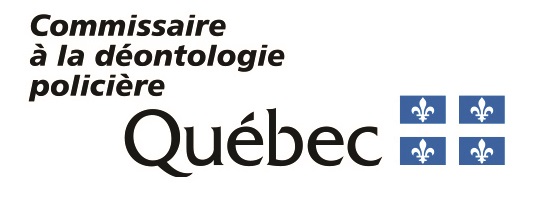About us
Our History
Our History
Here are some important dates in the history of the Commissaire à la déontologie policière and the police ethics system in Quebec.
1987 | The Anthony Griffin CaseAnthony Griffin, a 19-year-old black man, tried to flee after being arrested by a Montreal Urban Community police officer named Allan Gosset. After calling Anthony Griffin to stop, Constable Gosset fires a shot that hits him in the head and kills him. The Commission des droits de la personne then decided to investigate "the allegations of discriminatory treatment and racist behavior towards visible and ethnic minorities by the police services as well as the causes of the tensions in the relations between these minorities and police forces". | ||
| |||
1988 | The Bellemare ReportThe Comité d'enquête sur les relations entre les corps policiers et les minorités ethniques created by the Commission des droits de la personne was chaired by Me Jacques Bellemare. The Bellemare Report (entitled Les pratiques en matière d'enquêtes criminelles au sein des corps de police du Québec) highlighted that the population perceives that a system that leads police officers to judge each other is likely to lead to biases against citizen complainants. He therefore recommended that an independent system for processing complaints against police officers be created: the system of police ethics. | ||
| |||
1990 | The Act Respecting Police OrganizationThis law brings major changes regarding the processing of citizen complaints against police officers :
| ||
| |||
1996 | The Corbo ReportThe ministère de la Sécurité publique decides to carry out a review and revision of the functioning and mechanisms of the Quebec police ethics system after being advised of several related problems:
The mandate was then given to Claude Corbo, former rector of the University of Quebec in Montreal and researcher in political science. The Corbo Report (entitled À la recherche d'un système de déontologie policière juste, efficient et frugal : rapport de l'examen des mécanismes et du fonctionnement du système de déontologie policière effectué à la demande du ministre de la Sécurité publique du Québec) issued various recommendations:
| ||
| |||
1997 | Legislative Changes Following the Corbo ReportThe Act to amend the Act respecting police organization and the Police Act with regard to police ethics is adopted, which retains several of the recommendations of the Corbo Report, including that of making conciliation mandatory during the police ethics process. | ||
| |||
2000 | Adoption of the Police ActThe Police Act, replacing the Police Act and the Police Organization Act, does not make any changes to the jurisdiction, powers and duties of the Commissaire à la déontologie policière. | ||
| |||
2009 | Extension of the Extraterritorial Powers of Police Officers and the Application of the Code of Ethics of Quebec Police OfficersAmendments are made to the Police Act to allow police officers to be vested with extraterritorial powers and to determine the ethics regime applicable to them. Thus, under certain conditions, a police officer from another province or territory of Canada may perform duties in Quebec and a police officer from Quebec may perform their duties in another province or territory of Canada. In both cases, these people are subject to the Quebec Police Code of Ethics. However, no sanction may be imposed on a police officer from another province or territory of Canada. | ||
| |||
2021 | Tabling of the Rapport final du comité consultatif sur la réalité policièreIn 2019, the ministère de la Sécurité publique tabled the document Réalité policière au Québec : modernité, confiance et efficience. This publication offers an inventory that serves as a starting point and common basis for a desired reflection on the reality of Quebec policing. An advisory committee, made up of 5 people, has been set up to carry out this reflection. It heard organizations, stakeholders and citizens who wanted to share their thoughts on the reality of Quebec policing during consultations and public hearings. The advisory committee submitted its report in May 2021. Here are the recommendations concerning the Commissaire à la déontologie policière or the police ethics regime:
|
About us
Need help?
If you want more information or if you need help drafting your complaint, you can contact us.
deontologie-policiere.quebec@msp.gouv.qc.ca
